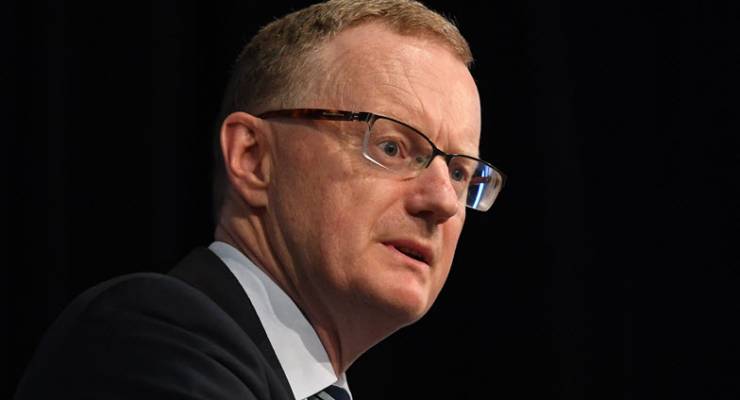
On the surface, Reserve Bank (RBA) governor Philip Lowe’s post-meeting statement yesterday painted an almost Pollyannaish portrait of the economy. Presumably it must have been typed up for his approval prior to the release of Monday’s awful retail sales figures for September.
“The low level of interest rates, recent tax cuts, ongoing spending on infrastructure, the upswing in housing prices in some markets and a brighter outlook for the resources sector should all support growth,” Lowe insisted, again repeating that a “gentle turning point” had been reached.
Look more closely, however, and you can see the RBA planning to further cut its economic forecasts, projecting economic stagnation into 2022.
We won’t see the final Statement of Monetary Policy (SMP) for the year from the bank until Friday, but downgrades are coming. “The central scenario is for the Australian economy to grow by around 2¼% this year and then for growth gradually to pick up to around 3% in 2021,” Lowe said yesterday.
“The central scenario remains for inflation to pick up, but to do so only gradually. In both headline and underlying terms, inflation is expected to be close to 2% in 2020 and 2021.”
The last SMP, in August, had growth this calendar year at 2.4%, so that will be cut to 2.25%. It was 2.6% in the May statement, and 3% in the February statement, and 3.2% last November. A near 1% slump in projected growth over a year makes it quite a “gentle turning point”.
The August SMP also had inflation reaching 2.1% at the end of 2021; now inflation may only be “close” to the lower band of the bank’s inflation target by then. That will mean that the RBA will only have reached its inflation target on two quarters between 2016 and 2022.
That may mean a further cut to wage growth forecasts. The August SMP had wage price index still stuck at 2.4% — just 0.1 of a point higher than now — all the way to the end of 2021.
By then, a full decade of virtually no wages growth will be in sight for Australian workers — a feat that should be a matter of profound shame for policymakers and politicians. Except that many in the government and business think it’s a great outcome.









In how many other jobs can you get so many things so wrong, so often, and “earn” so much …. (aside from this government of course)?
Maybe it is time the RBA raise the interest rates and dump the economy into recession so that something, anything, would be done by this government.
It’s way overdue for politicians’ salaries, allowances & electoral expenses to stagnate along with our peasant wages.
This is getting tedious – when in the shit, do nothing about the shit, just predict improvement.